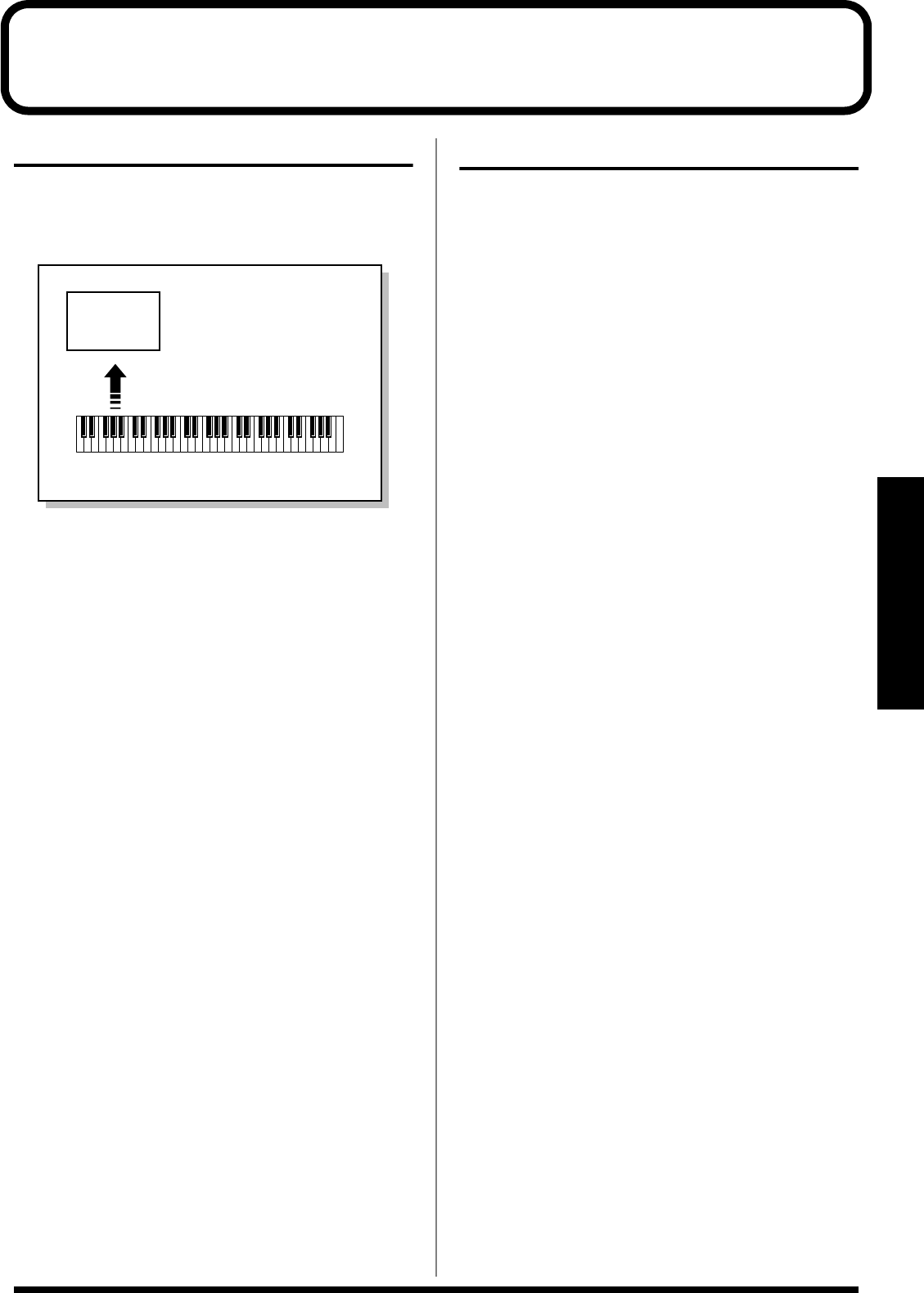
31
Overview of the RD-700
Overview of the RD-700
Basic Organization of the RD-700
The RD-700 can be divided into two sections: a keyboard
controller section and a sound generator section. The two
sections are connected internally by means of MIDI.
fig.00-G1
Keyboard Controller Section
This section includes the keyboard, the Pitch Bend/
Modulation Lever, the panel knobs, and any pedal connected
to the rear panel. Actions such as pressing and releasing of
keys on the keyboard, depressing a pedal, and so forth, are
converted to MIDI messages and sent to the sound generator
section, or to an external MIDI device.
Sound Generator Section
The sound generator section produces the sound. Here, MIDI
messages received from the keyboard controller section or
external MIDI device are converted to musical signals, which
are then output as analog signals from the OUTPUT and
PHONES jacks.
Units of Sound
When using the RD-700, you will notice that a variety of
different categories come into play when working with
sounds. What follows is a simple explanation of each sound
category.
Tone
The individual sounds used when playing the RD-700 are
referred to as “Tones.” The RD-700 provides 468 types of
Tones. Tones are assigned to each part.
The Tones also include various groups of percussion
instrument assembled into “Rhythm Sets.” Each key (note
number) of a Rhythm Set will produce a different percussion
instrument.
Part
A sound generator of this type which can control multiple
sounds using one device is referred to as a multitimbral
sound generator. The RD-700 contains a multitimbral sound
generator capable of playing sixteen Tones simultaneously.
“Parts” are where Tones that are created when the RD-700 is
used as a sound generator are assigned. Since different Tones
can be assigned to each of the Parts and controlled
individually, you can have multiple Tones play
simultaneously (layer), divide the keyboard into separate
ranges and have different Tones sound in the different parts
(Split), and enjoy playing ensemble performances.
The sixteen Parts played by the RD-700’s internal sound
generator are referred to as “Internal Parts.”
Local Parts and MIDI TX Parts
The RD-700 features three Parts (UPPER1, UPPER2, and
LOWER) that you can use for freely controlling the Internal
Parts with the RD-700’s buttons and keyboard. These three
Parts that are used for controlling the Internal Parts are
collectively known as the “Local Parts.” Three of the sixteen
Internal Parts are assigned to the Local Parts for control (the
RHYTHM Part is fixed at Part 10).
Furthermore, you can freely control external MIDI sound
generators with the RD-700 in the same manner as with the
Local Parts. You can likewise control the external MIDI
sound generator with the three Parts (UPPER1, UPPER2, and
LOWER), with this group of three Parts being referred to as
the “MIDI TX (Transmit) Parts.” The external MIDI sound
generator is assigned to these three Parts for control (the
RHYTHM Part can also be partially set).
Keyboard Controller Section
(controllers such as keyboard, pitch bend lever, etc.)
Sound
Generator
Section
Play
RD-700_e.book 31 ページ 2004年4月26日 月曜日 午前11時54分


















